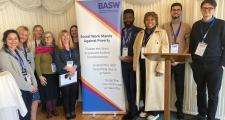Cuts, calamity & concessions: UK Government’s Welfare Bill passes

MPs voted on Wednesday for the Universal Credit Bill to proceed to the House of Lords.
Despite the government shelving some of the most controversial measures initially proposed, swathes of Labour backbenchers continued to vote against it. In the end, the Bill only passed by 94 votes, a long way from the government’s majority of 172.
The process has been widely criticised for causing uncertainty and worry, while the Bill itself will likely plunge more people into hardship. Yet, the level of concessions that the government had to accept to get the Bill passed has meant that it will no longer achieve the £5 billion in savings by 2030 that Ministers had originally hoped for.
Main aspects of the Bill
The stricter eligibility rules for Personal Independence Payments (PIP), which were the flagship measure of the reforms, have been scrapped for existing claimants. The decision whether to introduce it for future claimants will be decided following the Timms Review into PIP assessments.
The standard rate of Universal Credit (UC) will rise with inflation until 2030, a move that has been welcomed by campaigners. However, an opposition amendment that would have uplifted it higher was defeated.
The health element of UC, an additional payment for individuals with health conditions or disabilities that significantly impact their ability to work, will be cut by 50% for new claimants, amounting to a loss of £3,000 a year.
The change to UC applies to all nations in the UK, but any forthcoming changes to PIP will only come into effect for England, Wales and Northern Ireland.
What happened in the Commons?
Before MPs voted on the Bill as a whole, a series of amendments were debated and voted on.
The government’s main changes included:
- The employment and support allowance for those who receive a disability premium or the support component will increase in line with inflation.
- Universal Credit for existing claimants of ‘limited capacity and work-related activity’ will rise in line with inflation.
While the standard rate of UC is increasing with inflation each year, there was an opposition amendment to increase it by 4.8% every year, which would have been higher. However, this was rejected.
A rebel amendment from Labour backbencher, Rachael Maskell MP which attempted to allow anyone with fluctuating health conditions to return to their higher entitlement if they needed to claim ‘limited capacity and work-related activity’ at a future point, was defeated. As it stands, only those whose conditions deteriorate up to six months after coming off this support will be eligible to return to the higher rate.
BASW Reaction
Following last week’s vote, we outlined our strong concerns about the proposals, warning that the cuts to Universal Credit risked worsening health and social outcomes which will only further exclude people from work and participating in society. We also made clear that, if the legislation could not adequately protect the most vulnerable or prevent demand on social work services increasing, MPs had to reject it. Read our response here.
Along with fellow campaigning organisations across the UK, we published a statement calling on the government to withdraw the Bill and instead commit to co-producing all disability benefits reforms with disabled people. Read our joint statement here.
While the eventual removal of the PiP element to the Bill is a relief, it is disappointing that the government chose to continue railroading the legislation through parliament. The lack of co-production, lack of proper parliamentary scrutiny, and lack of compassion shown toward those who will be most affected has been unacceptable.
We now strongly urge Ministers to uphold its pledge to undertake genuine and meaningful dialogue with disabled people on the review of PIP, where reform is centred on the rights and dignity that all disabled people deserve.
What happens now?
This is categorised as a ‘Money Bill’, so it effectively bypasses the usual process that legislation goes through in the House of Lords. Peers will debate it on 22 July but will be unable to suggest any changes and the Bill will become law by September.
The Timms Review into PIP assessments is expected to conclude in the autumn. The decision whether to tighten eligibility for new claimants of PIP will be decided upon the findings of this review.



